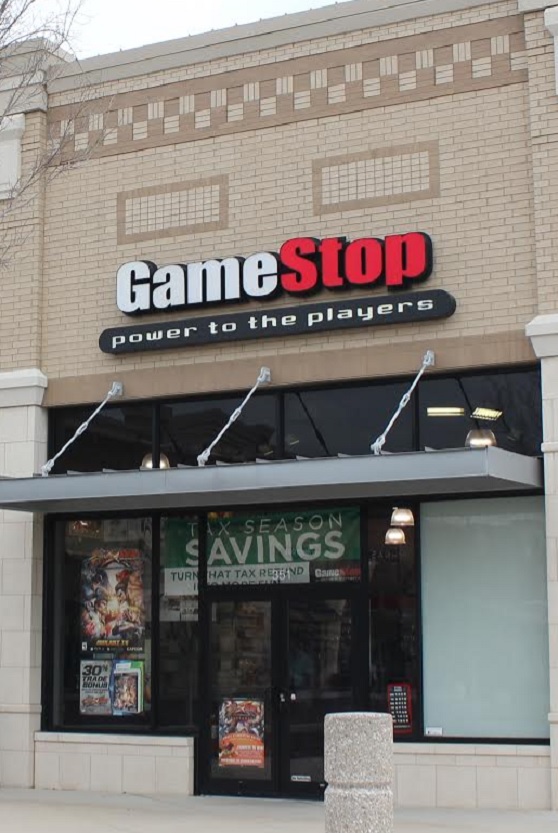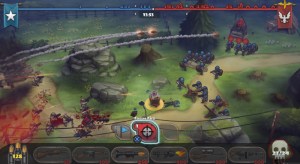GamesBeat: You guys said that the $400 Xbox Ones are flying the shelves?
Bartel: That was our quote. They are flying off the shelves. We’re seeing strong customer demand. I think the hour they announced it, we began taking pre-sales online and in our stores. Clearly, part of the demand GameStop saw was because of our pre-sale program.
GamesBeat: Were you surprised that there weren’t any last-generation price cuts?
Bartel: I don’t think so. They’ve taken some price cuts earlier, obviously. We weren’t anticipating any at this E3. We still continue to see the Xbox 360 and the PS3, from a software perspective especially, selling very strong. We sell a lot of pre-owned systems at an opening price point, so we satisfy a lot of demand there, and a lot of new hardware as well. I think there’s still demand. I’m sure, as in generations past, they’ll continue to take some price cuts, but for us it would have felt like it was very early to have another cut on those systems.
GamesBeat: As far as the competition between Sony and Microsoft goes, do you think it’s close enough now that it’s a healthy competition?
Bartel: I do. It’s great to have two very strong consoles for the core gamer. Wii U, clearly, has gotten off to slower start than they would have anticipated, but they’ve sold a lot of units. Their best IP is still in front of them. Mario Kart 8 is off to success. We’ve seen that become a system seller for us.
But having two healthy consoles is very strong. The other thing that’s become normalized between the two is the ecosystem behind them, the player ecosystem is stronger. PlayStation Network has made great strides. That’s going to be an important part of the competition as well. It’s not only the system, but also what you can do with the network. We’re seeing competition between Microsoft and Sony both on the hardware and the network behind the scenes.
GamesBeat: How about the weird stuff, like Project Morpheus and Oculus’s Rift virtual-reality headset?
Bartel: I tried both of those on. That’s going to be very interesting. There are differences between the two, obviously. For me, it’s too early to tell. We have to see how customers respond to it. It’s a different experience, definitely. I’ll have to clear out a large space in my living room for Morpheus, because my hands were going everywhere as I was playing that.
If gamers want it, and when gamers want it, we’ll sell more of it than anyone else. I see that as a definite accessory that some people will want. Oculus, I think, is still trying to determine whether it’s going to be a platform that people create to, or whether it’s going to be an accessory that people use for gaming and other applications. You can see the potential there for personalized gaming. I think we all have to figure out exactly what the use case is. It’ll be nice to know more about price points. Then we’ll have a clearer understanding of how deeply our customer base is going to adopt it.
GamesBeat: Were there any other things that caught your attention at the show?
Bartel: There were a few things. One, how focused the industry has gotten. It’s very focused on games, on console games in particular. You saw lots of innovation. Think of all the new IP — Destiny, Hardline would be in that category, Evolve would be in that category. We all knew Watch Dogs by then. I like the innovation.
One of the most impressive demos that I saw was NHL. I don’t know if you saw that at EA, but it was so lifelike. It was almost hard to discern between real life and gameplay. I know that’s more of a niche title, but I was very impressed.
We’re beginning to see people take advantage of the hardware power they have. But to me, it was really all about focus. Lots of good buzz around console gaming. It seems to be alive and well. We’ll see what happens when the next NPD comes out. Do you have a prediction on what software growth is going to be?
GamesBeat: I’ve seen others predicting pretty strong growth year-on-year.
Bartel: Yeah. I think we’ll see that. That’s the number one thing I saw. It felt much more focused to me than it has been in the past, focused on console games.
GamesBeat: When you talk about focus, do you mean that there’s also a lot less as far as casual games out there?
Bartel: That’s what struck me. I will admit that I attended a lot of meetings, unfortunately, covering all of the bigger publishers. But as I walked around the floor, what you saw was a lot of big games made for the console. That’s why I’m talking about focus. In the past, we’ve seen more fringe titles.
Indie was on display both at Microsoft and Sony. Clearly they’re making it easier for people to bring indie games to their platforms. But by and large it was focused on those core console games.
GamesBeat: If you look at this year compared to last year, or years past, are you still confident in the category, then?
Bartel: Absolutely. We’ve said there’s going to be growth in the category. Historically, post-launch I think we’ve seen 10 to 15 percent category growth in consoles. We anticipate that we’ll see growth in consoles. We’re very bullish. It’s the first year. We see multi-year double-digit growth, just like we’ve seen after prior launches. We remain very optimistic.
Clearly we’re optimistic about the uptake on the consoles, with 12 million of the Xbox One and PS4 being sold. That’s more than double the amount that was sold six months after the previous launch. The installed base is growing very quickly.
GamesBeat: What are your thoughts on your own digital business?
Bartel: It’s very strong, very robust. We just recorded, for the last quarter, 9.5 percent digital growth. When we look back on both the year and the last quarter, we’re outpacing the top four publishers in the category. We’re not only participating, but we’re driving it.
If you look at DLC as an example, when GameStop got into the business and started driving DLC at launch and allowing people to discover it along with their games when they were ready to spend money, we found that we really drove DLC. If you recall, when we got into it, nobody was launching DLC and selling DLC season passes at the time of launch. Call of Duty was the first one we did. It was incredibly successful. We shared, with all of the publishers, the success we had. Now it’s pretty well the standard. When you launch a game, you’re going to have a DLC season pass associated with it. We’ve been able to get behind and grow the digital business.
Our mobile publishing business is doing very well. We’ve launched nine games, with more than 10 million installs. We continue to double that business, the Kongregate business, quarter after quarter. We’re very much in the value chain on digital. We’re providing services to customers. We’re helping people discover digital content, which is still not easy to do. We’re helping them afford it. More than 60 percent of the currency used for digital in GameStop is something other than a credit card. Generally, we’re helping people identify great content by talking to people who love games.
GamesBeat: How many stores are you at right now?
Bartel: [We have] 6,600 GameStop stores, globally, [with] 4200 GameStops in the U.S. Then we have 240 additional technology brand stores. They’re changing so fast that it’s hard to keep track. We’re going to add between 300 and 400 technology brand stores this year.
GamesBeat: Is it still something like half a billion people coming into those stores each year?
Bartel: We anticipate about half a billion visits globally in our GameStop stores — GameStop, Micromania, EB Games. It’s all about growth. We came out of E3 a little bit tired, just from all the meetings and conferences we had, but we’re very optimistic about the future.
VentureBeat's mission is to be a digital town square for technical decision-makers to gain knowledge about transformative enterprise technology and transact. Learn More




